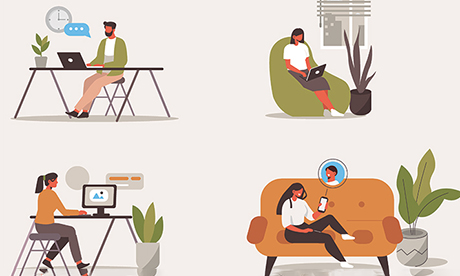With many employers keen to keep their workforces working from home post-Covid, there are dangers for workers, according to two leading experts on employment.
Will Hutton and Matthew Taylor told a Catholic social teaching conference that there were dangers from keeping people working from home even after lockdown ends. There was a risk of the social support and solidarity that work brings being lost.
“People want to be in groups and workplaces, but entrepreneurs and investors want highly atomised workforces,” Taylor told the Zoom conference, organised by St Mary’s University, Strawberry Hill.
Hutton agreed that “workplaces are social, they are good for morale, and they are where ideas are generated.” “Working from home should be part of the working world in the future, but it should not frame it.”
Research has shown almost all of the UK’s top employers have said they do not plan to bring their staff back to the office full time.
A BBC poll of 50 of the UK’s largest employers, collectively employing 1.1 million people, found that 43 firms said they planned to use a mixture of home and remote working going forward.
Jamie Mackenzie, director at Sodexo Engage, said it was no surprise to see businesses move towards a hybrid model.
“The world has changed, and therefore working policies need to evolve with it,” he said, arguing that employers now needed to do more to engage their workforce if they wanted to remain competitive.
However, Clare Kelliher, professor of work and organisation at Cranfield School of Management, urged businesses not to rush to remove access to workplaces.
While it was positive that businesses were exploring ways to maintain this form of flexible working as lockdown restrictions eased, she said some employees’ experiences of remote working made them keener than others to return to the office.
“If some remote working becomes enforced, rather than chosen by employees, it is likely that the many positive benefits available to employers from offering flexible working will not materialise,” she said.
